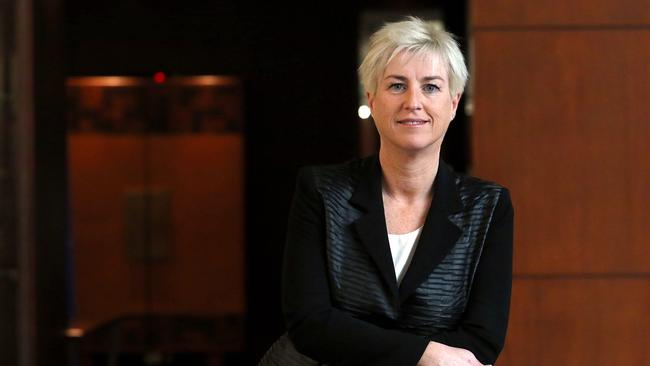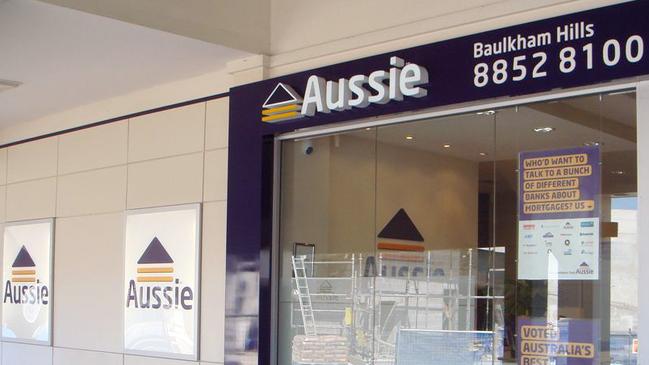Battle stations: Aussie Home Loans franchisees take issues to CBA-backed Lendi’s board
A group of Aussie franchisees has written to Lendi’s board demanding answers on how the mortgage broking group is being managed, as they escalate a bitter fight.

A large group of Aussie Home Loans franchisees has written to Lendi’s board demanding answers about how the mortgage broking group is being managed, as they escalate a bitter stoush between franchisees and the company.
A Facebook post to the Aussie Franchisee Association’s page, sighted by The Australian, referenced a letter sent to Lendi chair Ellie Comerford on November 18. It sought her response and position on key questions and matters raised by the association, including whether Lendi’s marketing practices and phone app were “consistent and harmonious” with the Aussie Home Loans franchise agreement.
Franchisees also wanted information on an announced cut to the company’s tiered commission structure for mortgage brokers and the introduction of a bundled monthly fee, which they said they considered “detrimental” to their interests.
A Lendi spokesman declined to comment on the letter or its engagement with franchisees. The biggest stake in Lendi is owned by its founders, employees and initial investors, but Commonwealth Bank holds 42 per cent and ANZ’s external venture capital unit, 1835i, and Macquarie Bank also own small stakes.
The ructions between franchisees and Lendi also come as sources said the company was actively weighing acquisition opportunities in Australia and offshore in markets including Canada. Lendi’s spokesman also declined to comment on that topic.
Ms Comerford, who has helmed the Lendi board since May 2021 according to LinkedIn, is the former chief executive of lenders mortgage insurer Genworth and a non-executive director of Webjet and Airtasker. Lendi merged with the larger Aussie Home Loans in 2021, creating a combined broking group with a network of stores as well as an online-only channel.
The Facebook post by the Aussie Franchisee Association – which represents half to two-thirds of Aussie’s more than 200 stores – raised the issue of how the company was collecting customer information and allocating leads to franchisees and stores. It asked about improving lead quality to brokers and protecting against “conversion becoming an unfair KPI where lead quality declines”.

The franchisees and Lendi management have, since mid-year, been fighting over whether postcodes of potential customers were being appropriately collected and referred to the relevant franchisee or broker.
The franchisees questioned whether customer leads were being sent to the right stores or allocated at the parent entity’s discretion. Lendi dismissed those concerns.
Aussie franchises were bought on the premise owners got access to customers within a particular territory. The Facebook post also referenced a question to Ms Comerford and the board about a “royalty” payment deducted from mortgage broker commissions by Lendi, requesting clarity around whether the money collected was being used as a marketing fund.
Disputes between parent entities and franchisees are not uncommon, but sometimes end up being adjudicated by regulators.
In 2017, after two infringement notices by the competition regulator, Domino’s Pizza became the first company to pay penalties for alleged noncompliance with the Franchising Code of Conduct.
The Australian Competition and Consumer Commission issued the infringement notices because it was of the view Domino’s failed to comply with a requirement in the franchising code to provide franchisees with both an annual marketing fund financial statement and an auditor’s report, within prescribed time limits.
This year, franchisees of Jim’s Dog Wash – part of the Jim’s Group known for its lawn-mowing unit – have taken issue with the level of fees levied on them relating to owning and operating franchises.
A Lendi spokesman last week said of the company’s commission changes: “As a business we need to continually evolve our commissions models to ensure they are fit for purpose, in line with market conditions and to promote growth within our stores.”
The Lendi merger with Aussie has continued to be turbulent, even more than three years after the transaction was completed.
Lendi is yet to lodge its fiscal 2024 results with the corporate regulator, although the company’s spokesman last week said that would happen soon.
Lendi’s after-tax losses swelled to $92.3m for the 12 months to June 30, 2023, from almost $2.5m the previous year, the latest accounts lodged with the regulator show. The weaker results were attributed to a challenging operating environment and markedly higher official interest rates, while those accounts also said the 2023 year was a peak for merger integration costs.
Unaudited underlying earnings before interest, tax, depreciation and amortisation – which adjusts for lumpy items and one-off restructuring costs – fell to $20.5m, from $55.3m in the previous financial year.
At the time of the merger, Aussie’s loan book stood at about $70bn, while digital disrupter Lendi had a portfolio of about $7bn. The latter was founded by David Hyman, Sebastian Watkins, Martin Lam and Mark Kalajzich.
Aussie was set up by John Symond in the 1990s to take on the major banks’ home loans stranglehold.




To join the conversation, please log in. Don't have an account? Register
Join the conversation, you are commenting as Logout